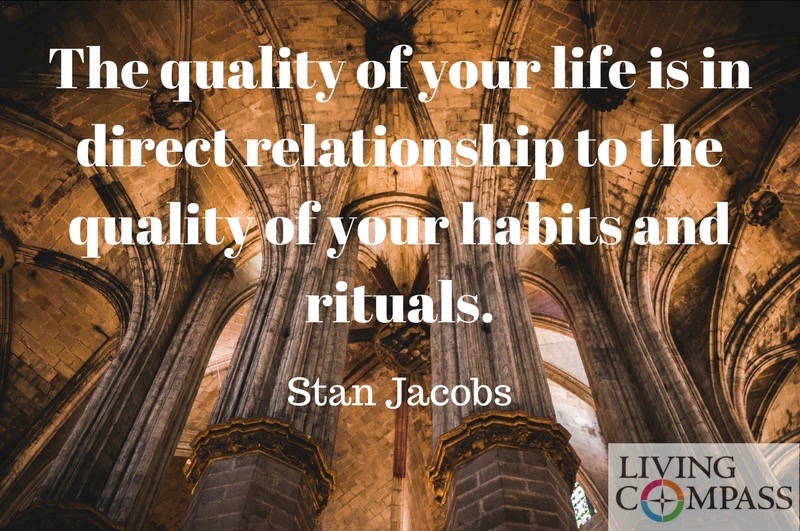The Yardstick of Success
My father died seven years ago this week, and as I reflected on the anniversary of his death, I remembered what a tremendous honor it was to give the eulogy at his funeral. I have spoken at many funerals through the years, but of course, this one was different. This one was both harder and easier for obvious reasons.
I had no trouble, of course, coming up with material or memories from which to to draw. The most challenging part was limiting what I could focus on in the time I had. I chose to celebrate the way he served as a constant caregiver to my mother for many years until she herself passed away seven years before his death, as well as the bravery he showed in serving our country in World War II, including being on the front lines of Utah Beach during the D-Day invasion. I also touched on all of the wonderful adventures he took our family on, such as two-week-long camping trips and instilling in us his love of birds and bird watching.
Have you ever noticed that what is often shared during a funeral eulogy seems to measure a life well lived by a different metric than the one that is most often used by people when they are busy living their lives? In a eulogy, there is rarely, if ever, talk of financial success, societal status, or material possessions. Instead, the focus is on how well the person lived—how they treated family and friends, and how they attempted to leave the world a little better and kinder place in some small way.
Barbara Bush’s passing this week brought what I am saying into focus. The full version of her quote at the top of this column says it best. All of the memories I have heard people share about Barbara Bush speak to the fact that she put these words into action in her own life.
“Never lose sight of the fact that the most important yardstick of your success will be how you treat other people – your family, friends, and coworkers, and even strangers you meet along the way.”
Sometimes when I have given a eulogy at a funeral, people will come up to me afterwards and say something like, “That was a beautiful eulogy you wrote!” My response is always the same, “Thank you, but I am not the one who wrote it. It was actually written by Barbara or Frank or _______ (insert the name of the deceased) in the way they lived their life.”
When someone we know dies, it is certainly a time for us to remember and reflect on how they lived their life. It can also provide a good opportunity for us to reflect on how we are currently living our own lives, and what yardstick we are using to measure success.
I close with one more quote from Barbara Bush that helps me to remember how to measure what is most important in life:
“At the end of your life, you will never regret not having passed one more test, not winning one more verdict or not closing one more deal. You will regret time not spent with a husband, a child, a friend or a parent.”
Subscribe Now to Weekly Words of Wellness:
Click the button below to signup for the e-mail version of Weekly Words of Wellness. This weekly article can be shared with your community electronically and/or used for group discussion.
You can unsubscribe at any time.




